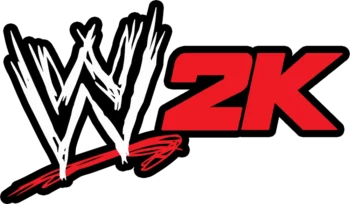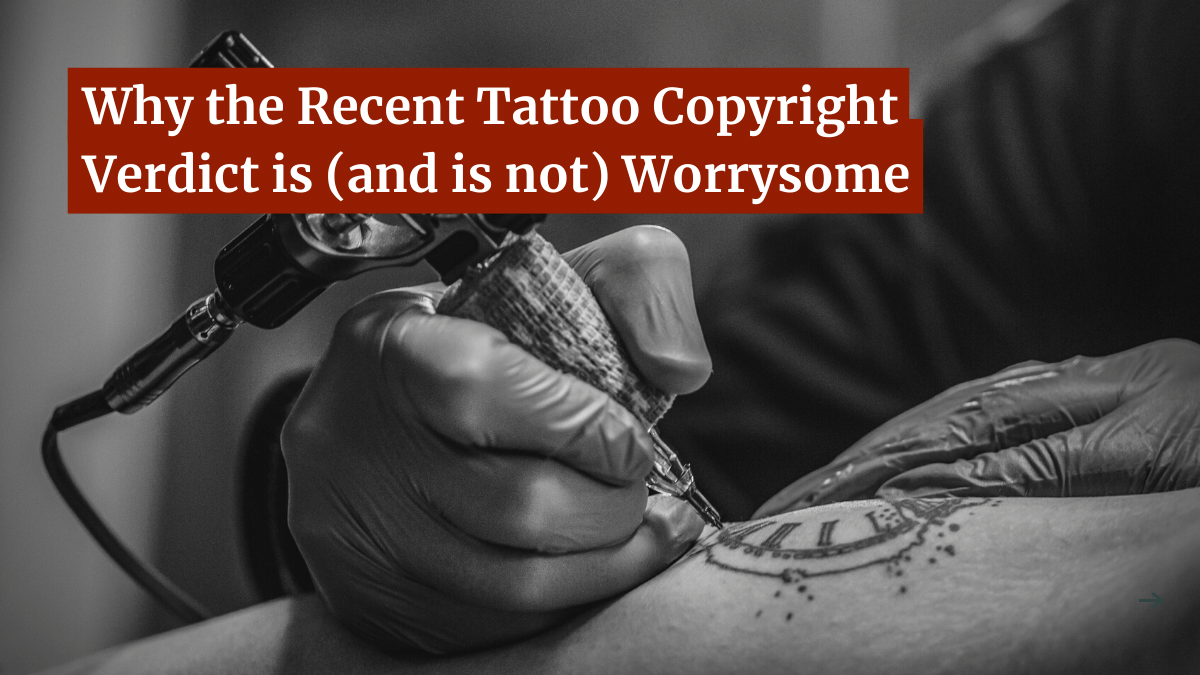Tattoos and Copyright: A Potent Combination

Last week, a jury awarded a victory to tattoo artist Christine Alexander in her long-running case against the video game company Take-Two Interactive.
Alexander is responsible for some of the tattoos on WWE star Randy Orton. Take-Two, as part of their ongoing WWE 2K series, featured those tattoos on Orton’s digital representation in several of its games.
This prompted Alexander to file a lawsuit against Take-Two, claiming copyright infringement of her work. That lawsuit, after a variety of stops and starts, went to trial last week with the jury awarding a victory to Alexander.
However, that victory may be something of a Pyrrhic one, as the jury opted not to award Alexander a share of the profits. Instead, they awarded her actual damages, totaling just $3,750 for the five tattoos at issue.
But, according to Alexander, the money amount wasn’t what was important in the case. Her attorney, Anthony Simon, told Law360 that this was about “vindicating the rights of little tattoo artists,” in particular those that have inked famous people.
However, others have decried the ruling, with attorney Aaron Moss being a particularly vocal critic. He called an earlier decision in the case one of the 5 worst copyright decisions in 2020 and, with the jury verdict, called it a loss for bodily autonomy and free speech.
To understand why this case is so important, we have to take a look at how we got to this point and why a battle over tattoos in video games has become such a divisive issue.
From Three Defenses to One
Last week, Moss summarized the history of the case in an article that is well worth reading. However, the important thing to know is that there was no doubt that Take-Two did copy the tattoos in question and there was no question of Alexander’s ownership of them.
From there, Take-Two had three separate defenses that they could have used:
- De Minimis – De Minimis is a legal concept where something is of so little importance that the court will not waste its time on it. In a copyright case such as this, it means that the infringement or harm is so minor, that the court determines it doesn’t matter.
- Implied License – Second, Take-Two could have argued that, by placing the tattoo on Randy Orton, that Alexander granted an implied license for it to be used as part of his image, including on TV, film and video games.
- Fair Use – That the use of the tattoos was a fair use, meaning that the use was transformative enough to not be an infringement of the original work.
While these would be three defenses that Take-Two could claim, the jury only got the chance to weigh one, fair use. The reason is the judge struck down the de minimis defense before trial and refused to instruct the jury on the question of an implied license (despite both parties asking for one).
In short, the jury only weighed in on the fair use question, which they found the use to not be fair.
From Take-Two’s perspective, the saving grace is likely the low damages award. Alexander had sought $2 for every copy of WWE 2K sold, an amount that would have equaled roughly $20 million. Instead, she only won actual damages totaling $3,750
For some contrast, that’s an amount that could have easily been awarded in the Copyright Claims Board, the new Copyright Small Claims Court. That board has a maximum total damages of $30,000.
Instead, this case was litigated for over four years in regular federal court, at great expense to both sides. Furthermore, since Alexander did not file her registration timely, she is not eligible to be awarded attorneys’ fees.
Still, the case does have the potential to set a precedent and it’s one that has many worried about the potential consequences.
Why the Worry?
There’s surprisingly little copyright litigation in the tattoo space. Lawsuits like Alexander’s are a relatively new phenomenon.
However, the big concern is simple: What happens when people who have tattoos are featured in images, films and other video games?
Typically, one has the right and ability to control their image, in particular when it is used for commercial purposes. However, at least theoretically, a person with tattoos would have a third party that they need to get permission from: The tattoo artist(s).
This could create a huge problem as tattoo artists could, theoretically, block usage of their work, even if the person it’s on gives permission. This difficulty is compounded by the fact that the original artist may be unknown, difficult to find, or unresponsive to queries.
In short, if tattoo licensing becomes the new norm, this could be a major headache for photographers, filmmakers and other visual artists. As Moss pointed out, it also raises serious issues of bodily autonomy, as a tattoo artist would effectively control a part of that person’s body through copyright.
The good news is that this case likely isn’t the ground shift that many are afraid it could be for one simple reason: A lawsuit still is not practical in these cases and the law is still very much unsettled.
Blurred Tattoo Lines
In March 2015, a jury awarded the estate of Marvin Gay $7.4 million in damages over allegations of copyright infringement in the song Blurred Lines. It was easily the biggest copyright news story of the year.
However, the case ended up being very unimportant from a legal precedent point of view. Five years later, in April 2020, a similar lawsuit over the Led Zeppelin song Stairway to Heaven illustrated that, as the Ninth Circuit handed the band a major victory.
Blurred Lines was a one-off. A headline-grabbing ruling that hinged more on facts specific to that case rather than a shift in thinking about the law. It didn’t leave a lasting impact, other than the musicians it inspired to try their hand with similar cases.
However, the Alexander case isn’t likely to inspire a similar groundswell of tattoo artists. First off, the damages are not as eye watering as they were in the Blurred Lines case. $3,750 may be a fair licensing fee, but it’s not an amount one easily justifies suing in federal court for.
Furthermore, there’s conflicting case law at issue here. A very similar case, Solid Oak Sketches v. 2K Games, dealt with the question of tattoos featured in NBA video games. That case found in favor of the defendants on all three of the defenses above, and the case was not cited in any way in Alexander’s.
It’s unclear whether Take-Two will appeal this decision, but, even if they don’t, it’s not likely that this case will change the landscape drastically. This case has drawn surprisingly few headlines, despite it centering around a celebrity, and the low damages amount isn’t doing much to change that.
Bottom Line
It’s unlikely, at least right now, that this case will lead to a major change in the way copyright is interpreted around tattoos. Not only is there contradicting case law, but the path to this verdict was bizarre and involved setting aside of at least two key defenses.
Couple that with the small damage amount, Alexander’s stated goal of opening up this licensing opportunity for tattoo artists is unlikely to come to fruition just yet.
That said, it has clearly gotten people talking and thinking about these issues. That is something that, largely, wasn’t true before. This spate of lawsuits over tattoos appearing on representations of their owners is relatively new.
The next chapter in this may well be written not in federal court, but before the Copyright Claims Board. Given the damages amount, this could be an area of law explored first and foremost by the CCB, as it is much less expensive than a regular federal lawsuit.
Still, while this ruling does raise a lot of important questions, it seems unlikely that this ruling alone is going to represent a major shift, either legally or practically.
But that doesn’t mean that this isn’t a space to watch, especially considering the overlapping issues at play.
Want to Reuse or Republish this Content?
If you want to feature this article in your site, classroom or elsewhere, just let us know! We usually grant permission within 24 hours.
